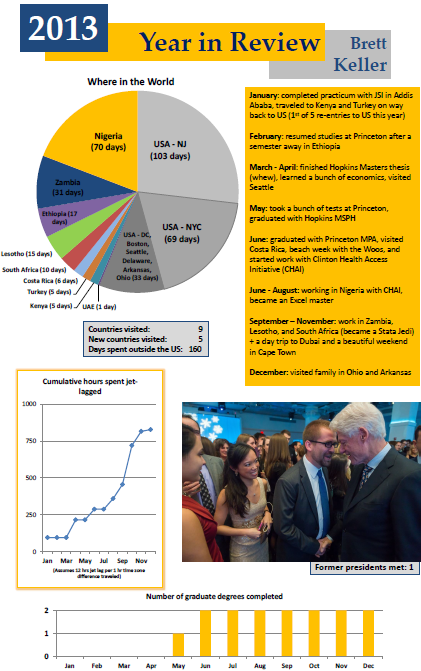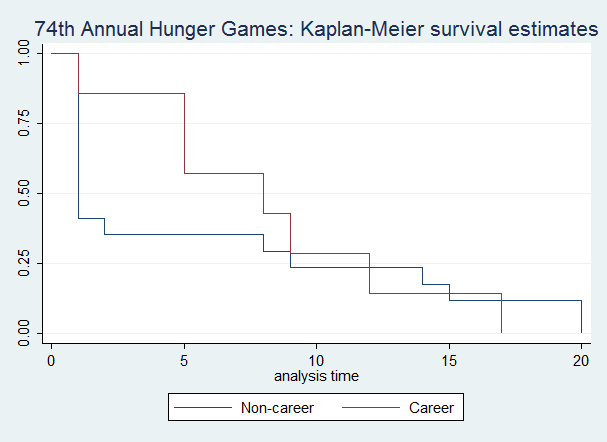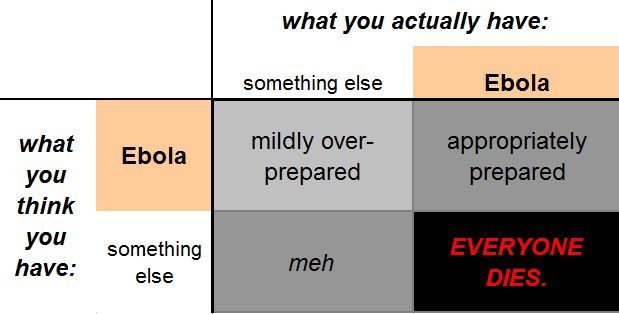Taxi conversations (caution: low external validity)
I will try not to generalize too much -- a la Thomas Friedman -- from conversations with taxi drivers to entire cultures or the state of nations, but I thought these three were worth sharing:
- In Zambia in October, I was asked "In America, who pays the the other family for a wedding, the man's family or the woman's family?" He was aghast that the answer was "neither," although on further discussion of American wedding rituals I conceded that the bride's family does pay more of the costs. This then led to many interesting conversations throughout my work in Zambia.
- In Kenya this week, I listed to a 20-minute explication on US foreign policy on the International Criminal Court. This lopsided knowledge, where non-Americans almost always seem to know more about US policy than Americans know of other countries' policies, is always a bit surprising, but also an indication that US decisions are felt around the world.
- In Tanzania last week, I was asked where I'm from. I respond "the US," and often get "which state?" but "Arkansas" yields blank stares. So, I typically say "Arkansas... it's next to Texas" or "Arkansas... it's where Bill Clinton was governor before he became president." This time I went with the latter explanation. The driver paused, and said "Bill Clinton... Yes, I think I know that name. He is Hillary Clinton's husband, yes?" Progress, there.
Year in review - infographic style!
It's been about six months since I wrote a real blog post other than a link round-up. One of my 2014 resolutions is to write more regularly -- either for this blog or for myself -- and I'm calling on you, blog readers, to hold me to it. In the meantime, I wanted to share a bit about what it was that kept me too busy to blog. It was a jam-packed year between finishing school, starting a new job, and traveling for fun and for work. At some point in the fall I made a pie chart of where I had spent time so far in the year, and that led to the idea of doing a holiday greeting card in the form of an infographic. I put one together over the holidays and share it with friends and family -- it's supposed to be a bit over the top and tongue in cheek, and it might just become an annual tradition, though future versions will have much better metrics. Click for the PDF:
I also updated the Photography page with links to these albums from 2013: Ethiopia, Costa Rica, Cape Town, and Lesotho. I'm sure there's a better way to present some of these, so suggestions in the comments for integrating photography into a blog are welcome.
Fun projects are fun
Jay Ulfelder, of the blog Dart-Throwing Chimp, recently wrote a short piece in praise of fun projects. He links to my Hunger Games survival analysis, and Alex Hanna's recent application of survival analysis to a reality TV show, RuPaul's Drag Race. (That single Hunger Games post has accounted for about one-third of the ~100k page views this blog got in the last year!) Jay's post reminded me that I never shared links to Alex's survival analysis, which is a shame, so here goes: First, there's "Lipsyncing for your life: a survival analysis of RuPaul's Drag Race":
I don’t know if this occurs with other reality shows (this is the first I’ve been taken with), but there is some element of prediction involved in knowing who will come out as the winner. A drag queen we spoke with at Plan B suggested that the length of time each queen appears in the season preview is an indicator, while Homoviper’s “index” is largely based on a more qualitative, hermeneutic analysis. I figured, hey, we could probably build a statistical model to know which factors are the most determinative in winning the competition.
And then come two follow-ups, where Alex digs into predictions for the next episode of the current season, and again for the one after that. That last post is a great little lesson on the importance of the proportional hazards assumption.
I strongly agree with this bit from Jay's post about the value of these projects:
Based on personal experience, I’m a big believer in learning by doing. Concepts don’t stick in my brain when I only read about them; I’ve got to see the concepts in action and attach them to familiar contexts and examples to really see what’s going on.
Right on. And in addition to being useful, these projects are, well, fun!
#MiddleEarthPublicHealth
The weekend is almost here, and the new year -- so how to celebrate? For a start, here are the results of a mashup meme I tried to start last night on Twitter: #MiddleEarthPublicHealth: https://storify.com/brettkeller/middleearthpublichealth
If the Storify version (which shows all the tweets) doesn't work, you can search on Twitter for the #MiddleEarthPublicHealth hashtag.
Do they know it's Christmas? No, because it isn't.
Remember "Do they know it's Christmas?" That's right, the 1984 hit song intended to raise money for famine victims in Ethiopia. If that's not ringing a bell (See what I did there?) then here's the video:
You probably didn't get very far, so here are some of the inane lyrics:
And there won't be snow in Africa this Christmas time The greatest gift they'll get this year is life Where nothing ever grows, no rain or rivers flow Do they know it's Christmas time at all?
In addition to reinforcing all sorts of stereotypes about Africa, this video gets one very important thing wrong: Do they know it's Christmas time? No, they don't, because Ethiopians are Orthodox Christians and don't celebrate Christmas until January 7th. So next time someone says they love this song, you now have an annoying know-it-all response to shut them down -- which you can consider your holiday gift from this blogger. Merry Christmas!
[On a more serious note, Ethiopia has made huge strides on food security since the fall of the Derg. If you want to read more on that, MoreAltitude (an aid blogger who recently relocated to Addis) has this take.]
Best billboard ever?
Hunger Games critiques
My Hunger Games survival analysis post keeps getting great feedback. The latest anonymous comment:
Nice effort on the analysis, but the data is not suitable for KM and Cox. In KM, Cox and practically almost everything that requires statistical inference on a population, your variable of interest should be in no doubt independent from sample unit to sample unit.Since your variable of interest is life span during the game where increasing ones chances in a longer life means deterring another persons lifespan (i.e. killing them), then obviously your variable of interest is dependent from sample unit to sample unit.
Your test for determining whether the gamemakers rig the selection of tributes is inappropriate, since the way of selecting tributes is by district. In the way your testing whether the selection was rigged, you are assuming that the tributes were taken as a lot regardless of how many are taken from a district. And the way you computed the expected frequency assumes that the number of 12 year olds equals the number of 13 year olds and so on when it is not certain.
Thanks for the blog. It was entertaining.
And there's a lot more in the other comments.
Another type of mystification
A long time ago (in years, two more than the product of 10 and the length of a single American presidential term) John Siegfried wrote this First Lesson in Econometrics (PDF). It starts with this:
Every budding econometrician must learn early that it is never in good taste to express the sum of the two quantities in the form: "1 + 1 = 2".
... and just goes downhill from there. Read it.
(I wish I remembered where I first saw this so I could give them credit.)
Another kind of "game" theory
We had been discussing monopolies at dinner, and I was trying to keep her engaged. So I invited her back to my apartment to read an article I wrote in the mid-1960s. I was raising serious questions about the whole basis of the Sherman Antitrust Act of 1890, and I actually went through considerable detail as to what I thought was wrong about it. Nothing I’ve seen in reality has changed it. I’m not denying that monopolies are terrible things, but I am denying that it is readily easy to resolve them through legislation of that nature. But we were in conversation of some form or another which related to this. So I was terribly curious to see how she’d respond.
Also:
I’ve frankly forgotten how she responded.
Life among the Econ
"Life among the Econ" (ungated PDF) is a classic essay by Axel Leijonhufvud that's worth revisiting -- here's the intro:
The Econ tribe occupies a vast territory in the far North. Their land appears bleak and dismal to the outsider, and travelling through it makes for rough sledding; but the Econ, through a long period of adaptation, have learned to wrest a living of sorts from it. They are not without some genuine and sometimes even fierce attachment to their ancestral grounds, and their young are brought up to feel contempt for the softer living in the warmer lands of their neighbours such as the Polscis and the Sociogs. Despite a common genetical heritage, relations with these tribes are strained-the distrust and contempt that the average Econ feels for these neighbours being heartily reciprocated by the latter-and social intercourse with them is inhibited by numerous taboos. The extreme clannishness, not to say xenophobia, of the Econ makes life among them difficult and perhaps even somewhat dangerous for the outsider. This probably accounts for the fact that the Econ have so far-not been systematically studied....
Walrasian equilibrium
For econ nerds only:
Here's Wikipedia on general equilibrium and Léon Walras. Wolfram Alpha also has a great little demonstration of Walrasian equilibrium where you can play around with the parameters.
Posted with the permission of my classmate and econ comic artist Marian Messing. Prior econ humor here and here.
Non-representative sample of Hunger Games responses
I had the idea for the Hunger Games survival analysis post Tuesday afternoon and published it about 24 hours later (and yes, in the meantime I did sleep, eat, and do a bit of real work as well). I thought it might hit a nerdy nerve by meshing pop culture and stats, and I was right. Three days later it's been read by over 12,000 people on my site alone, and the average time on page is long enough that I think folks are actually reading it and not just looking at the pretty pictures. It was picked up by Andrew Gelman and Jezebel (a Venn diagram with only this in the middle, I bet) and everyone from Stata to Discover Magazine shared it on Twitter.
All that to say, I think there's a market for explaining statistics and concepts from social science (I tried to work in some political science, economics, and psychology research) using pop culture tie-ins, so I may do some more of this.
For now I want to share some of the humorous reactions I've seen:
- A classmates who is familiar with survival analysis but hasn't read the books saw the graphs and her immediate response was "Oh no, what happened on the first day? Those poor children!"
- Richard Williams, commenting on the Stata listserv discussion: "If Stata can win over the Hunger Games crowd, SAS & SPSS are finished."
- One of the comments on Metafilter kind of misses the point: "I love statistics, but come on: The major finding here is that Suzanne Collins did a good job creating a fictional dataset that shows some significant differences between groups. Yes, that's because statistics measures deviations from randomness, and Collins *made up the data* as part of her novel's plot." Shocking.
- A friend to a friend of mine on Gchat: "he used Stata for a Good Thing. It was Interesting. That's im-[ahem]-Possible and he Did It.
- Finally, the Teaching Assistant from last semester's generalized linear models class threatened to grade it as an assignment. Next time I'll use data where the assumption of the model (proportional hazards) aren't clearly violated...
An application of survival analysis to the Hunger Games (seriously)
I just finished what is quite possibly the nerdiest thing I've ever written: "Hunger Games survival analysis." I manage to pull in articles from Matt Yglesias and Erik Kain and discuss tesserae inflation, Prospect Theory, demographics, research by Acemoglu and Robinson and by Michael Clemens, game theory, coordination failures, arguments for open data, and of course the namesake survival analysis. Complete with Kaplan-Meier survival estimator graphs and all:
I posted it as a page rather than a blog post to make some of the formatting easier, so please click through to read the real thing.
Intertemporal choice Calvin and Hobbes
After reading some papers on microsavings and behavioral economics, my classmate Ezra shared this highly relevant Calvin and Hobbes strip on time travel:
For background see "Behavioral economics and marketing in aid of decision making among the poor" by Marianne Bertrand, Sendhil Mullainathan, and Eldar Shafir (Google Scholar)
Overhead at WWS
Last week a classmate of mine at the Woodrow Wilson School shared this story, which I in turn share with permission.
Today G and I were doing our impossible econ problem set in Schultz Café. It was about consumer surplus so there were some nice geometric properties, and it was fun finding the areas of the triangles and trapezoids. I said out loud, "I don't how to do it the econ way, G. I only know how to do it the 9th-grade-math way."Guess who was sitting right behind us?
For background, search this article for the paragraph on Sims and the SAT. Maybe this is why economics folks might think we public policy students aren't so great at math? Related: how to fight impostor syndrome.
Ugh!
There are many things we can do to avoid illness and injury. Given the proper resources and opportunity, you'd think we would all maximize our well-being: eat well, exercise, get your vaccines, and wear your seatbelt for starters. But no, not only do we not do those things, we humans go far out of our way to expose ourselves to all sorts of exotic risks. Four recent illustrations of collective human stupidity from the news: (1) Epidemiologist Tara Smith writes, "Does bestiality increase your risk of penile cancer?" (See Cowen's First Law: there is literature on everything.) These Brazilian researchers should win an Ig Nobel. And true to form for public health, they coin an acronym: SWA (Sex With Animals). Prof. Smith read the paper so you won't have to -- but you should at least read her summary to get the complete mental picture.
(2) Why is Delta Airlines running anti-vaccine in-flight infomercials? Doh-inducing background and petition here.
One of my Hopkins classmates who does not yet have a blog (but should) emailed a small group the following two stories:
(3) Parents in the US are mailing each other chickenpox-infected lollipops, amongst other things, to spread the disease and acquire natural immunity. Her summary: "Because asking your child to exchange bodily fluids with a sick stranger is a great idea!" True.
(4) Finally,though this one strikes me as an example of the "They're calling it [...]!" genre of local news stories about teenaged antics based mostly on hearsay, someone somewhere tried it: "Teens using vodka tampons to get drunk." My friend helpfully notes: "Your vagina does NOT have a gag reflex." Very astute. [Update: For the record, Scopes calls this one "undetermined."] OK, this one was an urban legend -- sorry.
I can't even begin to write an appropriate closing sentence for this post.
Pascal's Wager of Ebola
Music for math + econ
Music for math: "I Will Derive":
And music for economics: "Fear the Boom and Bust," a Keynes vs. Hayek rap battle...:
The Onion of Africa advocacy
"The Onion of Africa advocacy" is my new nickname for Falling Whistles, the Congo advocacy group that appears to be staffed more by graphic designers than people with policy chops or good taste. On first read it's hard to tell whether all of their material might actually be a big inside joke designed to mock tasteless, shallow advocacy messaging. Which would be awesome... except that they're serious. Their latest email, with the subject line "Announcing the Hamptons Edition Whistle" and a message body composed entirely of an image, is pasted below (click for larger version):
Judge for yourself?







